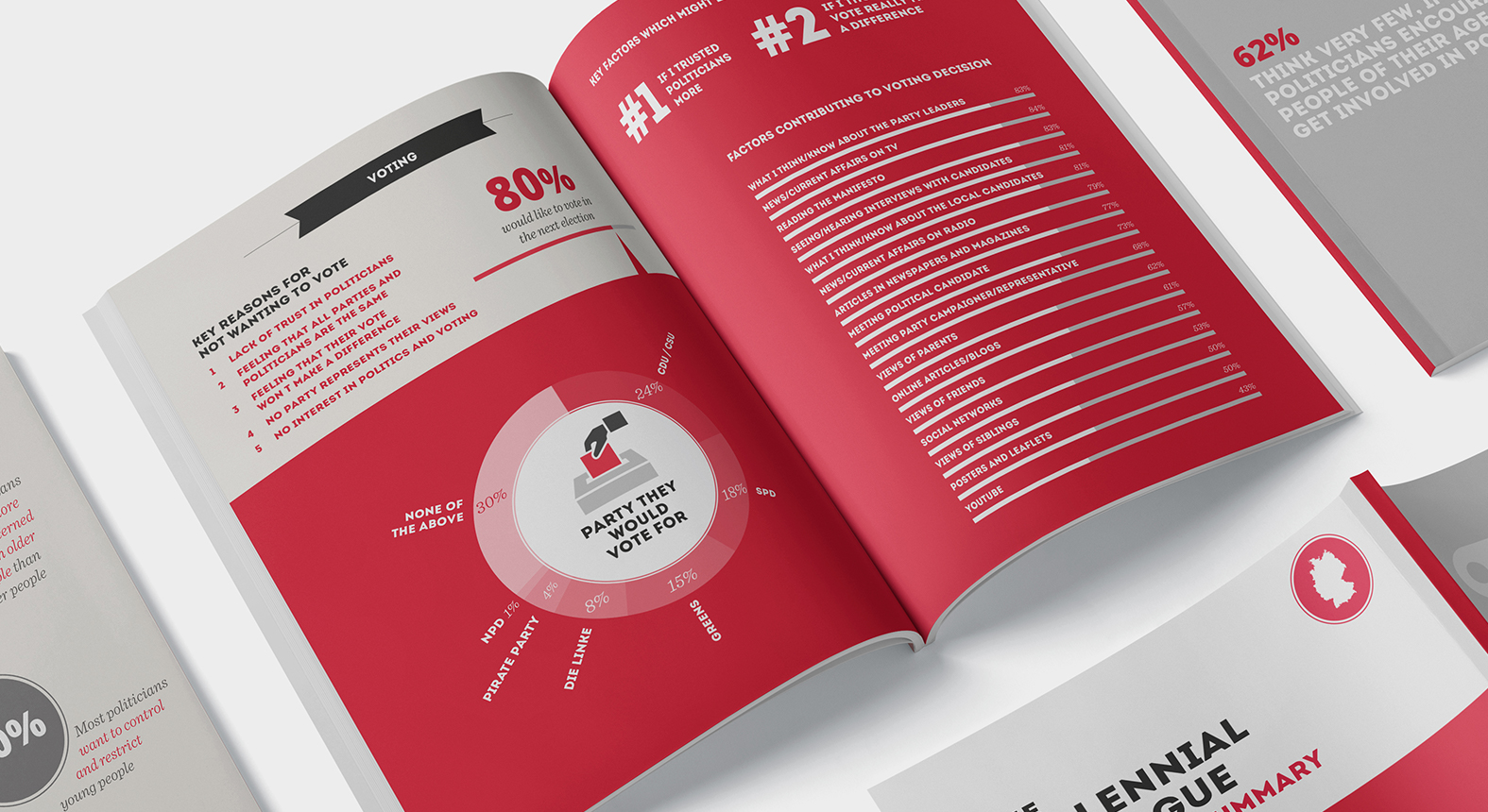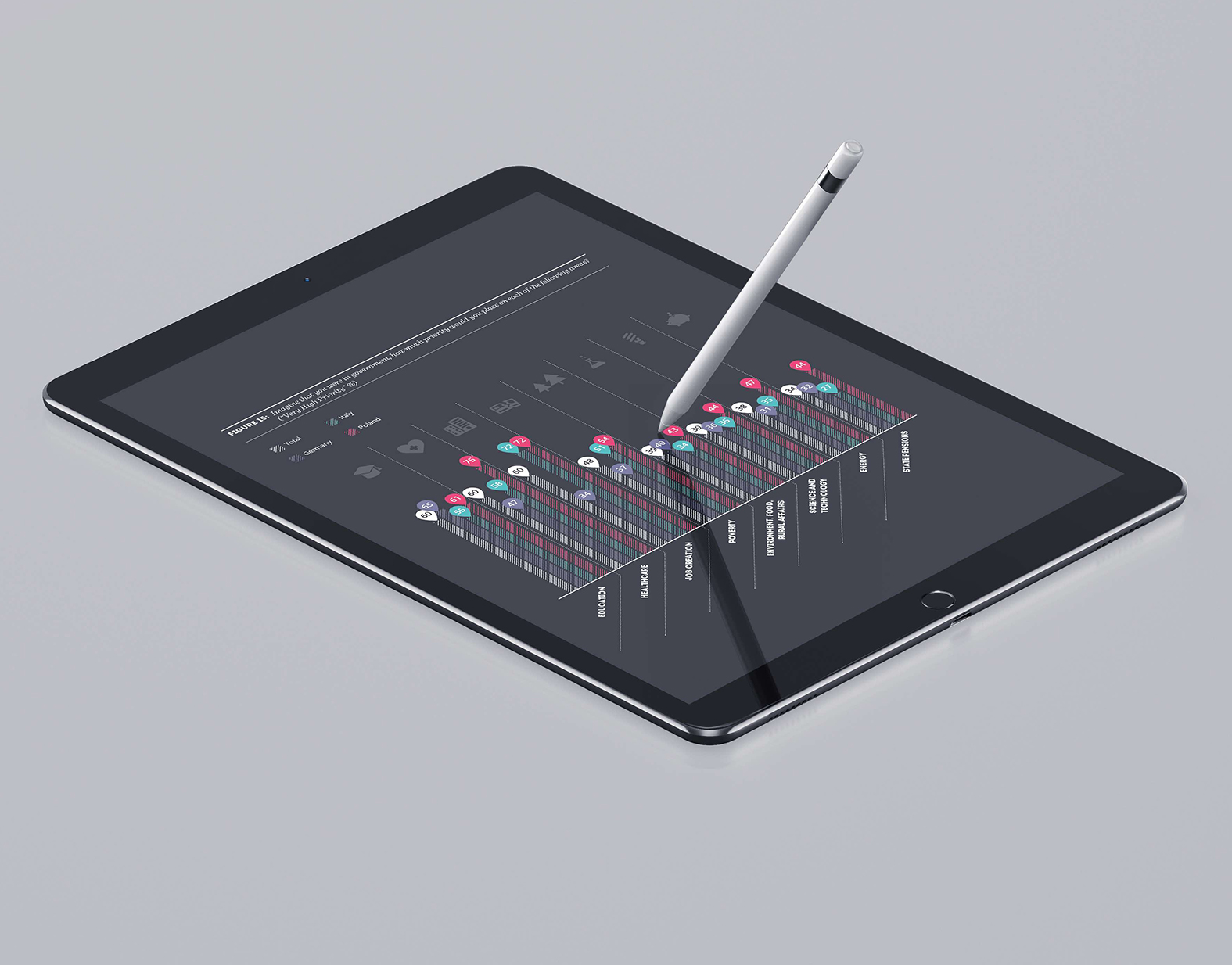Understanding millennial political disengagement


Our client wished to gain a better understanding of disengagement among millennials from political life and public institutions, with a view to helping relevant bodies better engage them in future.
In particular, they wanted to identify ways to build trust and confidence in political institutions, so that millennials are more inclined to exercise their democratic rights.
AudienceNet was commissioned to conduct a comprehensive, comparable global study of millennials covering lifestyle, social and political priorities, current political engagement and aspirations for the future of political engagement.

Owing to its success, after the initial pilot year of three territories, the research was extended to cover a number of additional member states, extending to 25 territories across six continents.
The findings have been presented at numerous international conferences and events attended by Prime Ministers, EU Commissioners, high-level politicians and senior academics.
Our method
AudienceNet developed a two-stage methodology across multiple territories, consisting of a quantitative online survey followed by a qualitative online community that included key audience segments (based on relative engagement with politics).
Given the public attention and level of scrutiny that the research findings would attract, robustness and transparency were of fundamental importance. AudienceNet undertook a number of steps to achieve this:
-
Tailoring the research instruments to the local/cultural context:
At the very start of the study, as research objectives were being finalised, AudienceNet facilitated a round-table discussion with all key stakeholders. -
Peer reviewing:
Prior to finalisation of the questionnaire, the master document was circulated to leading academics in the space. -
Representativeness:
While quantitative data was largely collected online, to ensure representation of those in lower internet penetration areas, offline collection was also used.


